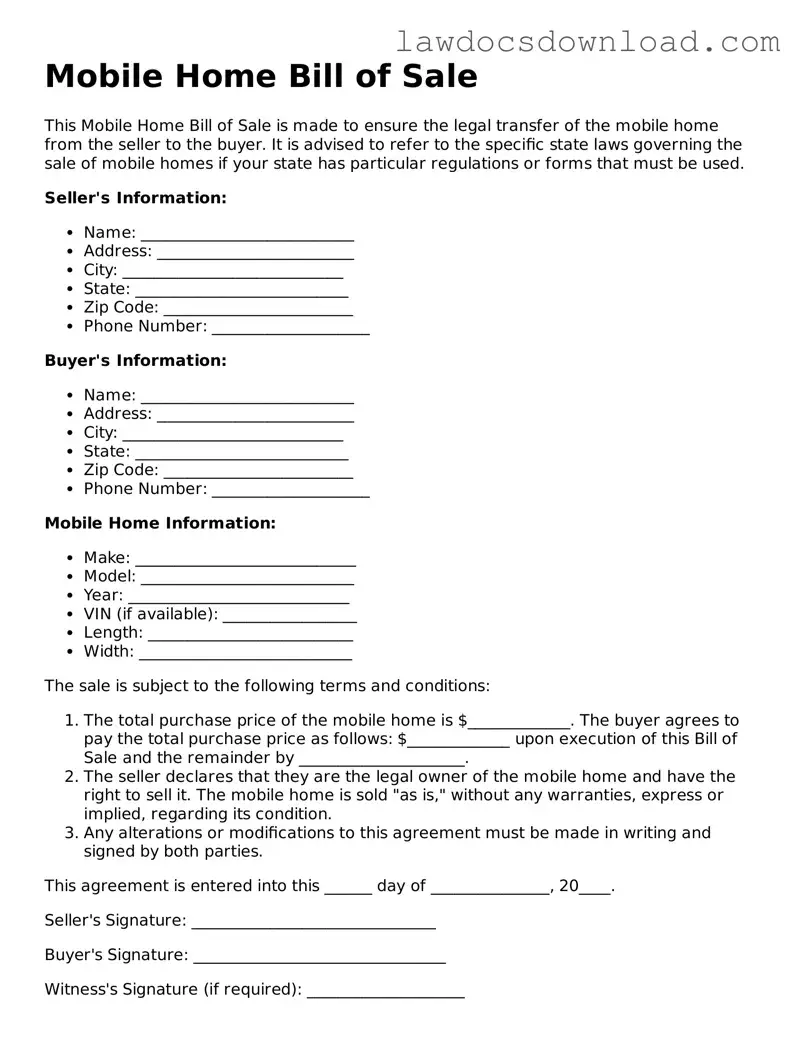The Mobile Home Bill of Sale form shares similarities with the Vehicle Bill of Sale document. Both serve as legal records confirming the transfer of ownership from the seller to the buyer. They typically outline the identification details of the item being sold (a mobile home or a vehicle), the sale price, and the date of sale. Moreover, both documents require the signatures of both parties involved, acting as a contractual agreement that the transfer has occurred under the agreed-upon conditions.
Another similar document is the Real Estate Bill of Sale. This document is used in transactions involving the sale of real property, not just mobile homes. Like the Mobile Home Bill of Sale, it lists the property details, the identities of the buyer and seller, the sale price, and the transaction date. Both documents also serve to legally document the transfer of ownership and protect the rights of both parties.
The General Bill of Sale is a broader document that can be used to sell various types of personal property, from electronics to furniture, and can resemble the Mobile Home Bill of Sale in structure and purpose. It acts as a receipt for the transaction and includes similar information: descriptions of the items being sold, the identities of the buyer and seller, the transaction date, and the sale price. Its versatility makes it applicable in a range of transactions, including those for a mobile home.
Equipment Bill of Sale forms are also akin to the Mobile Home Bill of Sale. They are specifically designed for the sale of machinery and equipment but share the basic framework of item description, details of the buyer and seller, transaction details, and signatures. This similarity underscores the importance of formally documenting the specifics of a transaction across a variety of sales contexts.
The Business Bill of Sale document parallels the Mobile Home Bill of Sale in its role of formalizing the sale of a business or business assets. Although the items being sold differ significantly—one involves a mobile home, and the other, business assets—they both detail the parties' information, the sale terms, and the sale completion confirmation, ensuring a clear transfer of ownership rights.
A Boat Bill of Sale form, much like the Mobile Home Bill of Sale, confirms the sale of a boat from one party to another. Both include detailed descriptions of the item being sold (a boat or a mobile home), the sale price, the identification of the buyer and seller, and the date of sale. They are essential for proving ownership and may be required for registration purposes with the relevant authorities.
Lastly, the Firearm Bill of Sale is similar but used for the sale of guns and firearms. Similar to the Mobile Home Bill of Sale, it includes item identification, buyer and seller details, the price of sale, and the transaction date. Both documents play a crucial role in ensuring the legal transfer of ownership, with the added importance in the case of firearms of adhering to specific legal requirements and regulations.

